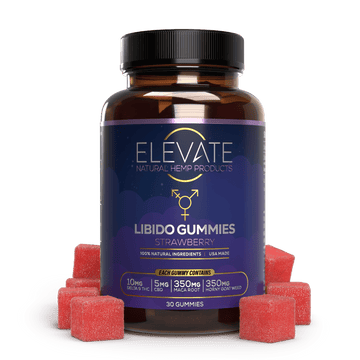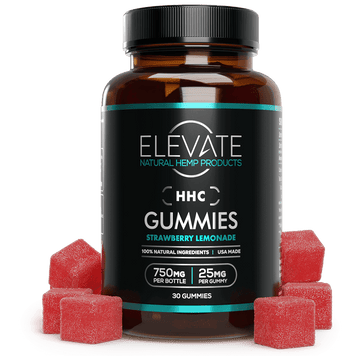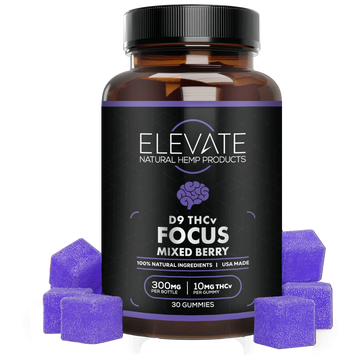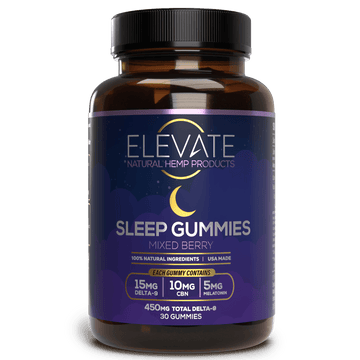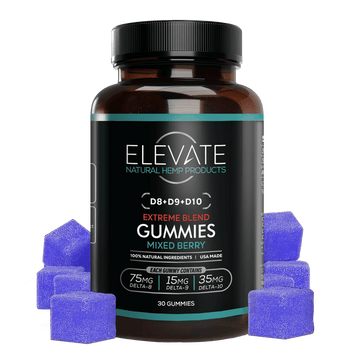THCO vs THCA: Key Differences You Need to Know

THC-O and THCA are very different:
THC-O:
- Synthetic (lab-made)
- 2-3x stronger than Delta 9
- Delayed onset (20-30 min)
- Increasingly restricted
THCA:
- Natural (raw cannabis)
- Not psychoactive until heated
- Converts to THC when smoked
- Legal in most states
Table of Contents
- So, What Exactly Is THCO?
- What to Expect from THCO: Effects & Benefits
- And What About THCA?
- How THCA Works: Effects & Benefits
- THCO vs. THCA: Which One Is More Potent?
- Breaking Down the Key Differences: THCA vs. THCO
- The Psychoactive Question: THCO vs. THCA
- Comparing Potential Therapeutic Uses
- Understanding the Risks and Side Effects
- Are THCO and THCA Legal Where You Live?
- FAQs
- Which One Is Right for You?
- Key Takeaways
- Related Articles
The cannabis plant is full of fascinating compounds, and not all of them are what you might expect. While most people know about THC, two other cannabinoids are making waves: THCO and THCA. But here's the thing—they are worlds apart. One is a natural acid found in raw cannabis, offering its own unique properties. The other is a powerful synthetic compound that has sparked serious safety discussions. Getting the facts straight in the THCO vs THCA comparison is essential. Knowing the difference helps you make smarter, safer choices about what you consume.
THCO and THCA are particularly intriguing because they represent two different stages in the life cycle of THC: one is an acidic precursor, and the other is a synthetic analog. Both are relevant in today's cannabis market, offering unique effects that cater to different needs and preferences.
So, What Exactly Is THCO?
THCO, or tetrahydrocannabinol-O-acetate, is a synthetic cannabinoid derived from THC. It doesn't occur naturally in the cannabis plant but is instead created through a chemical process that involves adding an acetate group to the THC molecule. This process significantly alters the compound's properties, making it distinct from both THC and THCA.
How THCO is Made
Unlike cannabinoids that you find growing naturally on the cannabis plant, THCO is a man-made compound. The creation process is quite scientific and always happens in a controlled lab setting. It starts with CBD (cannabidiol) that has been extracted from legally grown hemp. First, chemists convert this CBD into Delta-8 THC. From there, they introduce a chemical called acetic anhydride to the Delta-8 THC molecule, which transforms it into THC-O-acetate. Because this process involves volatile and potentially dangerous chemicals, it requires specialized equipment and expertise. It’s definitely not a DIY project and is best left to the professionals to ensure a safe, pure final product.
THCO as a Prodrug: The Delayed Effect
One of the most important things to understand about THCO is that it functions as a "prodrug." This means your body has to metabolize it before you can feel any of its effects. Unlike THC, which can produce effects relatively quickly, THCO has a noticeable delay. After you consume it, your liver processes the acetate molecule, leaving behind a potent form of THC. This metabolic step means you might not feel anything for 20 to 45 minutes, or sometimes even longer. Because of this delayed onset, it's crucial to start with a low dose and wait patiently to see how you feel before taking more. The experience is often described as producing a heavier body sensation and, for some, mild psychedelic effects.
What to Expect from THCO: Effects & Benefits
THCO, or tetrahydrocannabinol-O-acetate, is a synthetic cannabinoid that's been gaining attention for its potent effects and unique benefits. Here are a few key points to understand about THCO:
- Intense Psychoactive Experience: THCO is known for being significantly more potent than traditional THC. Some users report that it can be up to three times stronger, leading to a much more intense psychoactive experience. This heightened potency can result in stronger euphoria, deeper relaxation, and more pronounced alterations in perception. It's particularly appealing to those who are looking for a more profound and mind-altering experience than what regular THC can provide.
- Potential for Spiritual and Introspective Effects: Many users describe THCO as having a more introspective and almost psychedelic quality compared to THC. This can make it a popular choice for those interested in exploring altered states of consciousness or for use in spiritual practices. The effects of THCO are often slower to kick in, but they tend to last longer, offering an extended period of introspection and mental exploration.
- Pain Relief and Relaxation: Like other cannabinoids, THCO may offer potential benefits for pain relief and relaxation. Its intense effects can help to alleviate discomfort, making it a possible option for those dealing with chronic pain or high levels of stress. The strong relaxing effects of THCO can also be helpful for winding down after a long day or for those who struggle with sleep.
THCO is often consumed in the form of vape cartridges, edibles, or tinctures, and its effects can vary widely depending on the dosage and individual tolerance. Some users describe the experience as more introspective and spiritual, making it a popular choice for those looking to explore altered states of consciousness.
However, it's important to note that because THCO is synthetic, it's subject to different legal regulations than naturally occurring cannabinoids. In some regions, THCO may be considered illegal, while in others, it might be sold alongside other cannabis products. As with any cannabis compound, it's crucial to understand the legal status in your area before purchasing or consuming THCO.
The "Psychedelic" Myth
You've probably heard THCO thrown around with the word "psychedelic," and it's easy to see why the comparison is made. But let's clear the air: THCO isn't a psychedelic in the same way as substances like LSD or psilocybin. While some online claims have sensationalized its effects, the actual user experience tells a different story. In fact, one analysis of user reports found that the vast majority of people (79%) said their THCO experience was "not at all" or only "a little" psychedelic. This suggests that while the effects are strong, they don't typically produce the classic hallucinatory experiences associated with true psychedelics.
So, where does the "psychedelic" reputation come from? It really boils down to its strength. THCO is significantly more potent than traditional THC—some say it's up to three times stronger. This intensity can create a powerful, immersive high that feels more spiritual or introspective than what you might be used to from other cannabinoids. Because the effects are so profound and different from a standard THC high, it's understandable why people might reach for the word "psychedelic" to describe it. However, it's more accurate to think of it as a supercharged THC experience rather than a true hallucinogenic one.
And What About THCA?
THCA, or tetrahydrocannabinolic acid, is the precursor to THC. It's found naturally in raw and live cannabis plants, particularly in the trichomes, which are the tiny, sticky crystals that coat the flowers and leaves. Unlike THC, THCA is non-psychoactive, meaning it doesn't produce the "high" associated with cannabis use.
How THCA Works: Effects & Benefits
THCA, or tetrahydrocannabinolic acid, is the non-psychoactive precursor to THC, found naturally in raw and live cannabis plants. While it doesn't produce the "high" that THC is known for, THCA offers its own set of unique effects and benefits that are worth exploring:
- Non-Psychoactive Properties: One of the most appealing aspects of THCA is that it doesn't cause any psychoactive effects in its raw form. This makes it a great option for those who want to experience the benefits of cannabis without the mind-altering effects. You can consume THCA by juicing raw cannabis leaves, adding them to smoothies, or using them in salads. It’s an excellent way to incorporate cannabis into your wellness routine without getting high.
- Anti-Inflammatory Benefits: Research suggests that THCA may have significant anti-inflammatory properties. This could make it beneficial for people dealing with inflammatory conditions like arthritis or autoimmune disorders. By reducing inflammation, THCA might help manage pain and improve overall well-being, making it a valuable compound for those seeking natural alternatives for chronic pain management.
- Neuroprotective Potential: THCA is also being studied for its potential neuroprotective effects, which could be helpful for those at risk of neurodegenerative diseases like Alzheimer’s or Parkinson’s. While research is still in its early stages, these potential benefits are promising and suggest that THCA could play a role in maintaining brain health as we age.
- Antiemetic Properties: THCA might also help with nausea and vomiting, making it a potential option for individuals undergoing treatments like chemotherapy. Its antiemetic properties could provide relief without the psychoactive effects, offering a more comfortable experience for patients in need.
One of the most interesting aspects of THCA is its transformation into THC. When exposed to heat through a process called decarboxylation, THCA loses its acidic group and converts into THC, the well-known psychoactive compound. This process can occur naturally over time as the plant dries or more rapidly when cannabis is smoked, vaped, or cooked.
For those who prefer a non-psychoactive experience, THCA offers a way to enjoy the benefits of cannabis without the mind-altering effects. Additionally, because THCA is found in raw cannabis, it's often more accessible in states or countries where THC is heavily regulated or illegal.

THCO vs. THCA: Which One Is More Potent?
When it comes to the potency of THCO versus THCA, the difference is quite striking. THCO, or tetrahydrocannabinol-O-acetate, is known for being significantly more potent than its counterpart, THCA (tetrahydrocannabinolic acid).
THCO is a synthetic derivative of THC, created by adding an acetate group to the THC molecule. This chemical alteration doesn't just change the chemical structure of the compound; it also enhances its effects. THCO is reported to be up to three times more potent than regular psychoactive THC, meaning its effects are much stronger and can last longer. This makes THCO a popular choice for those looking for a more intense experience or exploring deeper states of consciousness.
On the other hand, THCA is a naturally occurring cannabinoid and the non-psychoactive precursor to THC, found naturally in raw cannabis plants. In its natural state, THCA doesn't produce the "high" that THC is famous for. However, when THCA is heated (through smoking, vaping, or cooking), it undergoes a process called decarboxylation, transforming into psychoactive THC, which then delivers the effects that interact with the endocannabinoid system.
In terms of raw potency, THCA doesn't hold a candle to THCO. While THCA has its own benefits—particularly as a non-psychoactive compound, where it may offer anti-inflammatory and neuroprotective properties—it doesn't provide the intense psychoactive experience that THCO does.
Where Does THCP Fit In?
So where does another cannabinoid, THCP, fit into this conversation? THCP, or tetrahydrocannabiphorol, is making waves primarily for its incredible potency. Some studies suggest it has a much stronger binding affinity for our cannabinoid receptors—potentially up to 30 times that of regular THC. This can translate to significantly more intense and longer-lasting effects, which is a major draw for experienced users seeking a more profound experience. Beyond its strength, preliminary research points to enhanced analgesic properties, making it a compound of interest for managing chronic pain. While the science is still developing and more studies are needed to understand its full profile, THCP is definitely a cannabinoid to watch in the evolving cannabis landscape.
Breaking Down the Key Differences: THCA vs. THCO
Though they share a common origin in THC, they differ significantly in their chemical makeup, effects, and uses. Let’s explore these key differences.
How They Differ on a Chemical Level
At the molecular level, THCO and THCA are quite distinct. THCA is the natural acidic precursor to THC, found in raw cannabis plants. It has a carboxylic acid group that makes it non-psychoactive in its raw form. This means that fresh cannabis plants rich in THCA won’t get you high.
THCO, on the other hand, is a synthetic cannabinoid, created by chemically modifying THC. The process involves adding an acetate group to the THC molecule, which significantly changes its properties. This synthetic alteration is what gives THCO its increased potency and distinctive effects compared to both THC and THCA.
The Psychoactive Question: THCO vs. THCA
The psychoactive effects of these two compounds couldn’t be more different. THCA, in its raw form, is completely non-psychoactive. It doesn’t produce the high that is typically associated with cannabis consumption. However, when THCA is heated—through smoking, vaping, or cooking—it undergoes decarboxylation, converting into THC, which is psychoactive.
THCO, on the other hand, is known for its intense psychoactive effects. It’s reported to be up to three times more potent than THC. Users often describe the THCO experience as being more intense and longer-lasting, with stronger euphoria and deeper mental effects. For those seeking a powerful high, THCO is an attractive option, but it’s not for the faint of heart or those new to cannabis.
How to Use THCO and THCA

THCA is typically consumed in its raw form by juicing cannabis leaves or adding them to smoothies or salads. This method preserves the non-psychoactive properties and allows consumers to benefit from its potential therapeutic effects without experiencing a high. THCA can also be consumed as an oil or tincture, which is popular among those seeking its medicinal benefits.
THCO is usually consumed in the form of vape cartridges, edibles, or tinctures. Because it’s much more potent, the dosage needs to be carefully monitored. The effects of THCO also take longer to kick in, so patience is key when consuming it, especially in edible form.
Available Forms of THCO
Since THCO is a synthetic cannabinoid, you'll typically find it as an isolate or distillate that's been added to various products. The most common ways to consume THCO cater to different preferences for onset time and convenience. You'll usually see it in vape cartridges, which are popular for their fast-acting effects and discreet use. This method allows you to feel the impact relatively quickly, making it easier to manage your experience. Another popular option is edibles, like gummies. With any edible, remember that the effects take much longer to kick in, so it's essential to start with a very low dose and be patient before considering taking more.
Tinctures are also a common form, offering a versatile way to use THCO. These liquid extracts can be taken directly under the tongue for faster absorption or mixed into food and drinks. This method gives you precise control over your dosage. Because THCO is known for its high potency, it’s crucial to approach it with caution, especially if you're new to it. The experience can be significantly more intense than with other cannabinoids. While we focus on naturally derived cannabinoids at Elevate, like our popular Delta 9 gummies, it's always important to be informed and safe with any product you choose.
How Long Do the Effects Last?
The onset and duration of effects for THCO and THCA are also different. THCA, when consumed raw, doesn’t have an onset of psychoactive effects since it doesn’t cause a high. However, if converted to THC, the effects can begin within minutes if smoked or vaped, or up to an hour or more if consumed in an edible.
THCO has a delayed onset, often taking 30 minutes to an hour to take effect, especially when consumed in edible form. However, once the effects do set in, they can last much longer than those of THC, sometimes extending for several hours.
Comparing Potential Therapeutic Uses
Both THCO and THCA offer therapeutic benefits, though they cater to different needs. THCA is praised for its potential anti-inflammatory, neuroprotective, and antiemetic properties. It’s often used by those looking for the medicinal benefits of cannabis without the psychoactive effects, making it suitable for daytime use or for those who need to remain clear-headed.
THCO, while more potent and psychoactive, may also offer benefits such as pain relief and relaxation. Its intense effects can be beneficial for those dealing with chronic pain, high stress, or insomnia. However, due to its strength, THCO might not be suitable for everyone, particularly those who are sensitive to strong psychoactive effects.
Understanding the Risks and Side Effects
In terms of safety, THCA is generally considered safe for most users, especially since it doesn’t produce psychoactive effects in its raw form. However, as with any supplement, it’s essential to use it responsibly and consult with a healthcare provider if you have any underlying health conditions.
THCO, due to its potency, comes with a higher risk of side effects, including paranoia, anxiety, dizziness, and fatigue. Because it’s much stronger than THC, users need to be particularly cautious with dosing. Starting with a small amount and gradually increasing as needed is advisable, especially for those new to THCO.
The Serious Health Risks of THCO
While the high potency of THCO might sound appealing to some, it’s crucial to understand the significant health risks associated with this synthetic compound. Unlike naturally occurring cannabinoids found in the cannabis plant, THCO is created in a lab, and its production and consumption come with some serious red flags. The lack of regulation and research means that using THCO is a gamble, with potential consequences that far outweigh the temporary high. Before you consider trying it, let's walk through some of the most pressing safety concerns that researchers and health experts have identified.
Toxic Fumes When Vaping
One of the most alarming discoveries about THCO is what happens when you heat it. Vaping is a popular consumption method, but with THCO, it’s incredibly dangerous. Research shows that heating THC-O, particularly at the high temperatures required for vaping, can produce a toxic gas called ketene. This isn't just a minor irritant; ketene is a highly toxic substance that can cause severe damage to your lung tissue. Inhaling it can lead to serious respiratory problems, and in some cases, it can even be fatal. This risk alone is a compelling reason to steer clear of THCO vape products entirely.
Link to Severe Lung Injury (EVALI)
The danger of vaping THCO doesn't stop with toxic fumes. Health experts have also linked its use to a severe lung illness known as EVALI (E-cigarette or Vaping Product Use-Associated Lung Injury). This condition gained national attention a few years ago and is characterized by severe lung damage that can require hospitalization and intensive care. Because THCO is an acetate compound, similar to Vitamin E acetate (a primary culprit in the EVALI outbreak), vaping it poses a direct threat to your respiratory health. The potential for developing a life-threatening lung condition is a risk that simply isn’t worth taking.
Manufacturing Impurities
Since THCO is a synthetic product, its safety is heavily dependent on the quality of the manufacturing process. The conversion from THC to THCO requires the use of harsh chemicals. If the lab process isn't perfect, these harmful chemicals can remain in the final product as impurities. An unregulated market means there are no standards for production or testing, so you have no way of knowing if the THCO you’re consuming is contaminated. This is why it's so important to choose products from brands that prioritize transparency and provide comprehensive lab results for naturally derived cannabinoids.
Unknown Long-Term Effects
Beyond the immediate dangers, there's a huge question mark around the long-term effects of THCO. Because it's a relatively new and synthetic substance, there is very little scientific research on how it affects the body over time. We simply don't know what the consequences of regular use might be. This lack of data means that anyone using THCO is essentially a test subject. Without long-term studies, it's impossible to understand the full spectrum of risks, including its potential impact on your brain, heart, and overall health down the line.
Potential for Addiction
The high potency of THCO also raises concerns about dependency and addiction. While more research is needed, experts suggest that frequent use of powerful cannabinoids like THCO could increase the risk of becoming dependent. The intense psychoactive experience can be highly reinforcing, leading some users to chase that feeling more and more often. This pattern of use is similar to what can happen with high-potency THC products, but the amplified effects of THCO could make the risk of developing a substance use disorder even greater for some individuals.
Are THCO and THCA Legal Where You Live?
The legality of THCO and THCA varies widely depending on where you are. In the United States, THCA is generally legal as it is not psychoactive, but this can change once it’s converted to THC. THCO, being a synthetic cannabinoid, falls into a more gray area. Some states may consider it illegal under their analog laws, while others might not have clear regulations.
FAQs
Q1. Can THCO and THCA be combined for use?
Yes, THCO and THCA can be combined, though their effects will vary depending on how they’re consumed. Combining them may provide a balance between the intense psychoactive effects of THCO and the non-psychoactive therapeutic benefits of THCA. However, it’s important to carefully consider the dosage, especially with THCO, due to its potency.
Q2. Is THCO safe for beginners?
THCO is generally not recommended for beginners due to its high potency. New users may find the effects overwhelming, leading to potential discomfort or anxiety. It’s better for beginners to start with lower-potency cannabis products, such as those containing THCA or regular THC, before considering THCO.
Q3. How should THCO and THCA be stored?
Both THCO and THCA should be stored in a cool, dark place to maintain their stability and potency. For THCA, keeping it in its raw form (as fresh cannabis) requires refrigeration to prevent degradation. THCO, typically available in vape cartridges or tinctures, should be stored according to the manufacturer’s guidelines to ensure its longevity.
The DEA's Ruling on THCO
The legal status of many cannabis compounds can feel like a moving target, and THCO is a prime example. For a while, it existed in a legal gray area created by the 2018 Farm Bill, which legalized hemp and its derivatives. However, that changed in early 2023 when the Drug Enforcement Administration (DEA) stepped in to clarify its stance. The DEA officially stated that THCO is considered an illegal controlled substance at the federal level. This ruling effectively removed THCO from the legal market in many places, as its synthetic nature placed it outside the protections of the Farm Bill. It’s a critical distinction that impacts both consumers and sellers across the country.
Why THCO is a Controlled Substance
So, what was the DEA's reasoning? It all comes down to how THCO is made. Unlike cannabinoids like CBD or THCA that are found naturally in the hemp plant, THCO is a man-made compound. It’s created in a lab by chemically altering hemp-derived CBD. According to the DEA, this synthetic process is the key issue. The 2018 Farm Bill protects cannabinoids that are naturally occurring in hemp. Because THCO isn't found in the plant and must be created synthetically, the DEA argues it doesn't qualify as legal "hemp." Instead, it falls under the category of a synthetically derived tetrahydrocannabinol, making it a Schedule I controlled substance.
Which One Is Right for You?
THCO and THCA represent two fascinating sides of the cannabis spectrum, each offering unique benefits and experiences. THCO, with its intense psychoactive effects, is ideal for experienced users seeking a powerful and long-lasting high. On the other hand, THCA provides non-psychoactive therapeutic benefits, making it a great option for those interested in the medicinal properties of cannabis without the high.
Understanding these differences allows consumers to make informed choices based on their individual needs and preferences, whether they're seeking a potent experience or therapeutic relief. If you're looking to explore premium cannabinoid products, Elevate offers a curated selection tailored to enhance your journey.
Why We Recommend Avoiding THCO
While the idea of a more potent cannabinoid might sound intriguing, we generally suggest approaching THCO with extreme caution, or avoiding it altogether. Its synthetic nature and intense strength, reportedly up to three times that of traditional THC, create an unpredictable experience. This heightened potency isn't for everyone and can easily become overwhelming, even for seasoned cannabis users. The risk of uncomfortable side effects like paranoia, anxiety, and dizziness is significantly higher with THCO. For most people, the goal is to find relaxation or relief, and the intensity of THCO can often lead to the exact opposite, creating a stressful and unpleasant situation rather than a beneficial one.
Exploring Safer, Legal Alternatives
The great news is that you don't need to turn to unpredictable synthetic compounds to find the experience you're looking for. The world of hemp-derived cannabinoids is full of well-researched, reliable, and federally legal options. For those seeking therapeutic benefits without a high, THCA remains an excellent choice for its potential anti-inflammatory and neuroprotective properties. If you're looking for a manageable psychoactive effect, products like Delta 8 gummies offer a milder, more clear-headed buzz, while Delta 9 gummies provide that classic cannabis feeling in a controlled, legal dose. By choosing products designed for specific outcomes, like finding focus or getting better sleep, you can tailor your experience with confidence and consistency.
Key Takeaways
- Know the Source: THCA is a natural, non-psychoactive compound found in raw cannabis, while THCO is a lab-created synthetic known for its extreme potency. This core difference impacts everything from their effects to their safety profile.
- Prioritize Safety Over Potency: THCO is not just strong; it's risky. Vaping it can create toxic fumes, and the DEA has officially classified it as an illegal controlled substance, making its potential dangers far outweigh the novelty of its high.
- Stick with Trusted, Natural Options: You can find the experience you want without resorting to risky synthetics. Well-researched, legal cannabinoids like Delta 8 and Delta 9 offer reliable and consistent effects, allowing you to confidently choose products for specific goals.
Related Articles
Join Our Newsletter
Sign up to be the first to know about our can't-miss product drops, special VIP offers & exclusive discounts.

